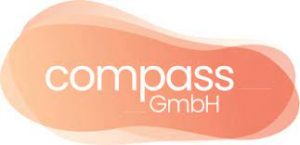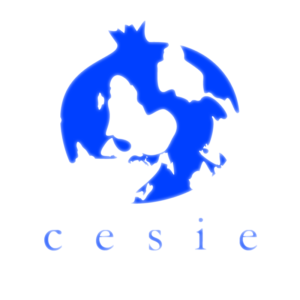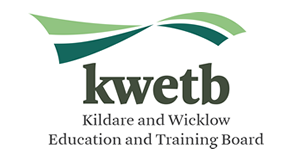Who We Are
ICEP Europe is an independent training and research institute specialising in online Continuing Professional Development. (CPD) and University-validated programmes for educators, youth workers, psychologists, and allied professionals. ICEP Europe also has a strong background in research on educational inclusion issues and has collaborated on research projects with high profile national and international organisations.
ICEP Europe has a long track record of training and up-skilling educators having run stand-alone CPD courses for teachers for the past 15 years. Both company directors have worked in the field of Early School Leaving and Youth Work for many years and have considerable international experience and expertise in developing training programmes for educators, and other professionals. They are also actively involved in ongoing research in this area.
The Centre for Resilience and Social and Emotional Health at the University of Malta seeks to develop and promote social and emotional health and resilience in children and young people. It operates as a transdisciplinary research centre tapping into the various strands of research and expertise provided by the different disciplines in the field, and conducts research and development work in the area. It has led and participated in various local, European and international research projects in the promotion of children’s and young people’s wellbeing, mental health and resilience.
In 2015 it published a European curriculum on the promotion of resilience in early years and primary schools (RESCUR Surfing the Waves) developed with five other European partners as part of an EU funded three year programme. The Centre also publishes the International Journal of Emotional Education, an international, online, open access, peer reviewed journal.
CESIE (European Centre for Studies and Initiatives) is a non-profit, apolitical, and non-governmental organisation with member organisations in more than eight European countries, including a base in Palermo, Sicily. The organisation’s primary aims are:
- To improve lifelong education in Europe through transnational projects involving local communities;
- To promote sustainable development of neighbouring regions and beyond through training and education;
- To support learning mobility for people at all ages, across borders and sectors;
- To stimulate local growth by adapting international good practices and methods.
CESIE has a strong background in research linked to societal issues and conducting needs analyses in order to develop creative learning systems aimed to enhance teacher professional development, to tackle Early School Leaving (ESL) and to work for the inclusion of migrants and vulnerable groups.
The Verein Multikulturell is an Innsbruck-based non-profit association with an intercultural orientation, geared towards the promotion of the professional, cultural and social inclusion of migrants. The Multicultural Association regularly offers the following (further) training courses: Migration Academy (language and computer courses for adults and adolescents, intercultural seminars and further education courses), media workstation (radio, film, photography, writing workshop), multilingual educational and vocational counselling, application training, coaching, and mentoring for young migrants.
Verein Multikulturell actively promotes the social and professional qualification of migrants and cooperates with system partners such as the state government, the chamber of commerce, the labour market service, various schools, social organisations and associations. The representatives of the association are in close contact with multipliers in the field of integration work and educational and counselling services for people with a migration background.
Kildare and Wicklow Education and Training Board (KWETB) has provided education programmes to Early School Leavers from aged 16 upwards since the 1980s, when a Department of Labour initiative established such programmes as YouthReach and Vocational Training Opportunities Scheme.
KWETB provides 260 places for young Early School Leavers (ESL) on the full-time YouthReach programme, which is delivered in seven geographically dispersed Education Centres (Wicklow: 4; Kildare: 3) to young people between 15 and 21. Young people on the YouthReach programme are offered opportunities to explore their future education, training and career pathways as well as their personal development and to engage in education and training programmes leading to awards on the National Framework of Qualifications, including work experience. A key part of the programme is the YouthReach Advocacy Service which delivers Career Guidance to young people.
The Association for Education and Sustainable Development (AESD) is an educational center, and its main activities involve the implementation of training courses of formal and informal lifelong education. The association aims to make a positive impact on social and economic development in the region, whilst also generating new opportunities for people at risk of social exclusion. Some of the most significant social problems in the region result from early school-leaving, growing unemployment and economic stagnation. One of the goals of AESD is to give marginalized young adults access to lifelong learning and employment experience in order to be able to obtain fixed employment in the long term. Special emphasis is given to the improvement of social competence, career guidance and learning on demand. Another priority aim for AESD is “to support smart, sustainable and inclusive growth through the reduction in the rates of early school-leaving”.

COMPASS is a non-profit company with an intercultural focus which was established to promote the professional and social integration of disadvantaged members and communities within European society. The organization’s primary work centres around their participation in transnational projects dedicated towards promoting the social inclusion of vulnerable or under resourced groups. Another focus of the organisation concerns the provision of educational and career advice, as well as application training for marginalized groups.
Through its endeavours, COMPASS aims to…
- Promote the social inclusion of migrants and their integration into the labor market .
- Strengthen existing skills and promote new qualifications in order to increase the employability of migrants.
- Empower migrants through access and targeted use of new technologies.
- Create gender equality.
- Enable intercultural exchange.


This project has been funded with support from the European Commission under the Erasmus+ Programme. This publication [communication] reflects the views only of the author, and the Commission cannot be held responsible for any use which may be made of the information contained therein.








